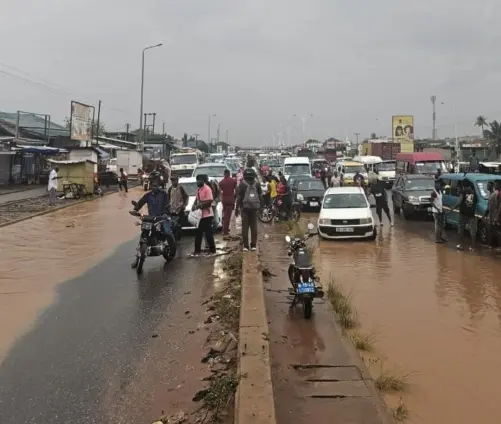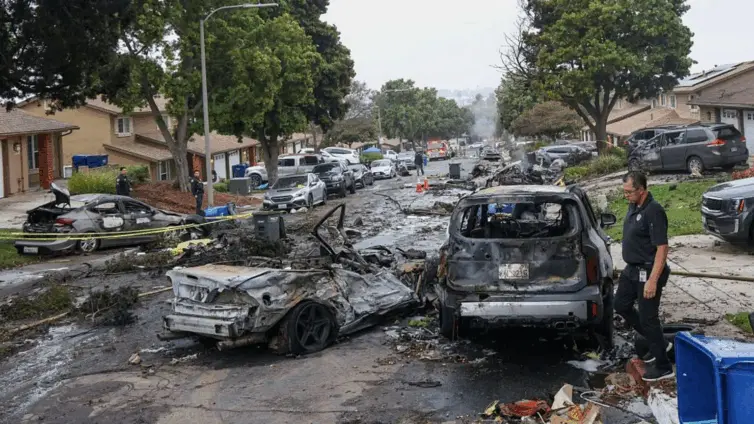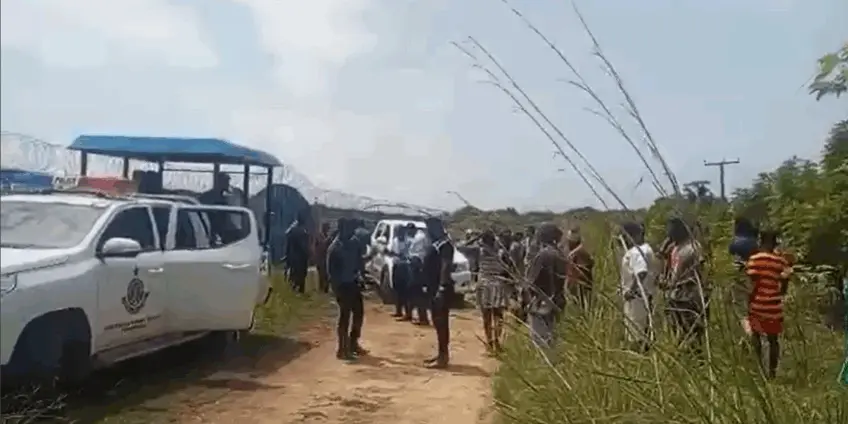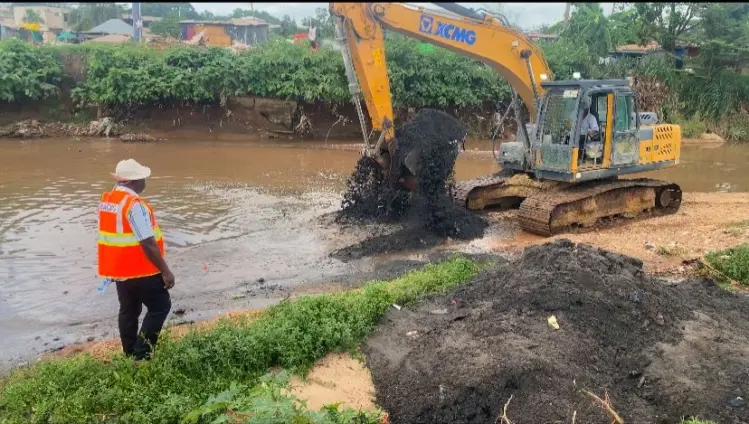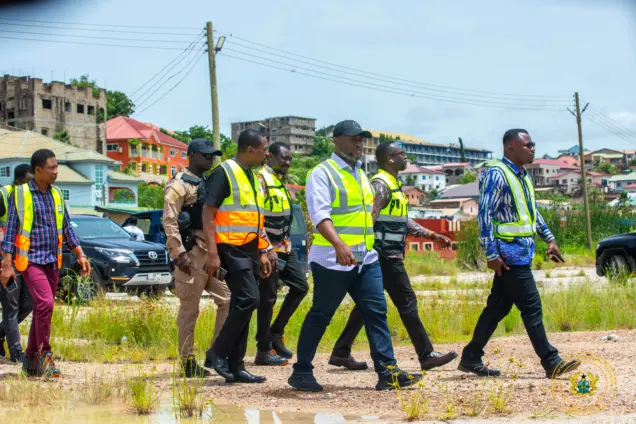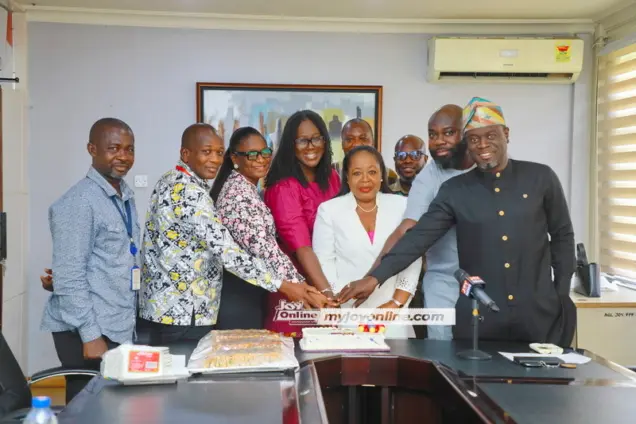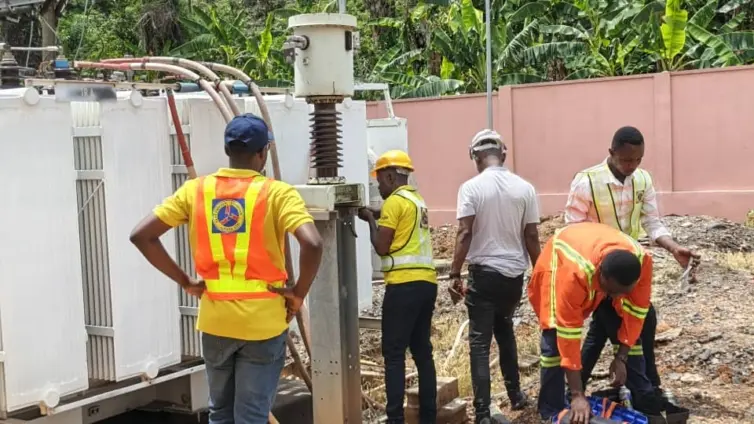Torrential rains transformed the Pokuase-Amasaman road into a virtual river on Sunday afternoon, leaving hundreds of commuters stranded and scores of vehicles partially submerged. The Pokuase-Amasaman road, a crucial artery for those traveling in and out of Accra, became a scene of chaos as the downpour intensified. The subsequent flooding on the Pokuase-Amasaman road brought traffic to a standstill, disrupting travel plans and daily routines.
According to reports and firsthand accounts, a heavy downpour caused severe flooding along the Pokuase-Amasaman road, resulting in significant traffic disruptions. The deluge, which began around 3 pm, quickly escalated, turning stretches of the road into impassable waterways.
The stretch of the Pokuase-Amasaman road between the Ofankor Barrier and the Mile 7 roundabout bore the brunt of the storm, becoming the epicenter of the flooding. Gridlock extended for miles, snaking from St. John’s Hospital all the way back to Ofankor. Commuters found themselves ensnared in hours-long traffic jams, with many drivers eventually abandoning their vehicles in a desperate attempt to seek higher ground. The Pokuase-Amasaman road was at a standstill.

Rising floodwaters, submerged vehicles, and seemingly endless lines of traffic painted a grim picture of the situation on the Pokuase-Amasaman road. The sheer volume of water overwhelmed drainage systems, turning the road into a temporary extension of nearby water bodies. Photos and videos capturing the extent of the flooding quickly circulated on social media platforms, offering a stark visual representation of the challenges faced by those caught in the deluge. Citizen journalism played a crucial role in disseminating information and documenting the impact of the heavy rain.

While the immediate cause was undeniably heavy rainfall, the severity of the flooding raises questions about underlying infrastructure issues. Inadequate drainage systems may have exacerbated the situation, struggling to cope with the sudden influx of water. The incident also highlights broader concerns related to urban planning and its impact on flood control. Long-term solutions could involve strategic investments in improved drainage infrastructure, coupled with the implementation of sustainable urban planning practices that prioritize water management and resilience to extreme weather events.
The Pokuase-Amasaman road flooding serves as a stark reminder of the urgent need for proactive measures to mitigate the impact of heavy rainfall and protect commuters from future disruptions. Addressing infrastructure deficiencies and embracing sustainable urban planning are crucial steps towards building a more resilient and flood-prepared Accra. The situation demands immediate attention from authorities and a concerted effort to implement long-term solutions that safeguard the well-being of residents and the smooth functioning of the city’s transportation network.
Image Source: MYJOYONLINE

